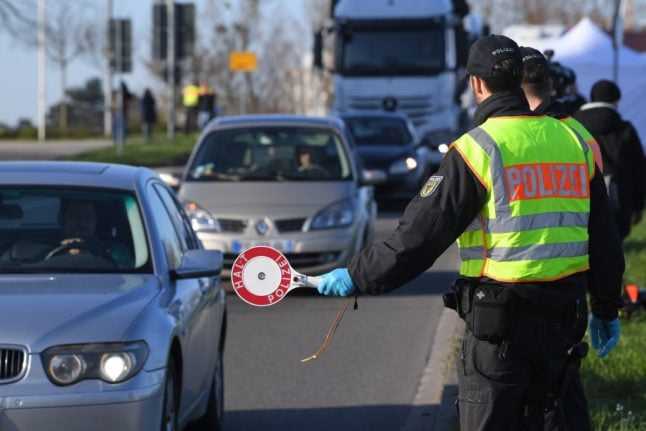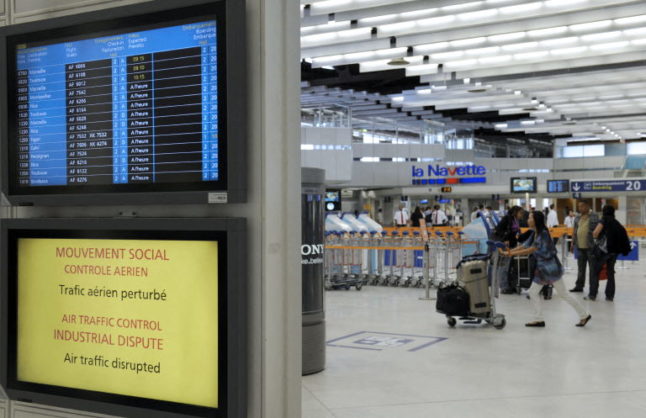Speaking after an EU council video conference on Thursday, Commission chief Ursula von der Leyen insisted that internal borders must remain open for the single market to function but that members of the public should avoid travel.
“In view of the very serious health situation all non-essential travel should be strongly discouraged within a country and across borders,” she said.
“At the same time it's important to keep the single market functioning. Goods and essential workers must continue to cross borders smoothly. This is of upmost importance.”
The question of imposing restrictions on internal borders to fight the spread of more contagious Covid-19 variants has risen to the fore in recent days, pushed mainly by concerns raised by Germany and France.
Germany had proposed temporary and limited bans on all passenger traffic from non-EU countries if necessary, whilst France on Thursday night announced that anyone entering France by air or sea from within the EU must present a negative Covid-19 test. Hauliers and cross-border workers are exempt.
Border restrictions are a matter for individual member states but France and Germany plus EU officials in Brussels have been pushing for a coordinated response after the travel chaos that occurred during the first wave of the pandemic in spring 2020.
Press Conference following #EUCO VTC on coronavirus https://t.co/1DZsTVLyza
— Ursula von der Leyen (@vonderleyen) January 21, 2021
In March as infections soared around Europe several member states panicked and closed off national borders unilaterally, triggering travel chaos.
That decision came to be seen as disastrous, disrupting the already stumbling European economy, and the leaders say they will work hard to find ways to thwart new variants of the virus, while keeping factories and businesses running.
Von der Leyen put forward the proposal of classifying parts of the EU as “dark red zones” where the virus is circulating at a very high level.
“People travelling from dark red zones could be required to do a test before departure, as well as to undergo quarantine after arrival. This is within the European Union,” she said.
The Commission is also proposing additional safety measures for the EU's external borders.
Travel into the EU is heavily restricted but essential trips are allowed. The Commission proposes that all travellers should undergo testing before departure – in reality many EU countries already require this.
The EU Commission can only make recommendations and it is up to the EU council whether to approve them. But given borders are governed at a national level many countries within the EU and Schengen area have already taken action to impose these kind of measures.
Tighter measures needed
The EU disease agency ECDC on Thursday urged countries to prepare more stringent measures and speed up vaccine campaigns in the coming weeks because of the risks of more infectious variants of the novel coronavirus.
The European Centre Disease Prevention and Control (ECDC) said in a new report that countries in the EU and European Economic Area “should expect increased numbers of Covid-19 cases due to the gradual spread and possible dominance of the variants with increased transmissibility.”
“The key message is to prepare for a rapid escalation of the stringency of response measures in the coming weeks to safeguard healthcare capacity and to accelerate vaccination campaigns,” the agency said.
According to the agency the “rate and scale” of the spread would depend on the level of prevention measures and adherence to those measures.
The ECDC said that some 16,800 cases of a new more infectious variant of the novel coronavirus had been identified in the UK, where it was first discovered, and some 2,000 cases in 60 countries around the world as of Tuesday, of which 1,300 cases were in 23 countries in the EU and EEA area.
Around 570 cases of another variant, also more infectious, first discovered in South Africa have been detected in 23 countries, with 27 cases in 10 EU/EEA countries, in addition to the 349 cases confirmed in South Africa as of January 13th.
The ECDC also urged members to monitor changes in transmission rates or infection severity to identify and assess the circulation and impact of variants, and also to prepare laboratories for increased testing.



 Please whitelist us to continue reading.
Please whitelist us to continue reading.
Member comments